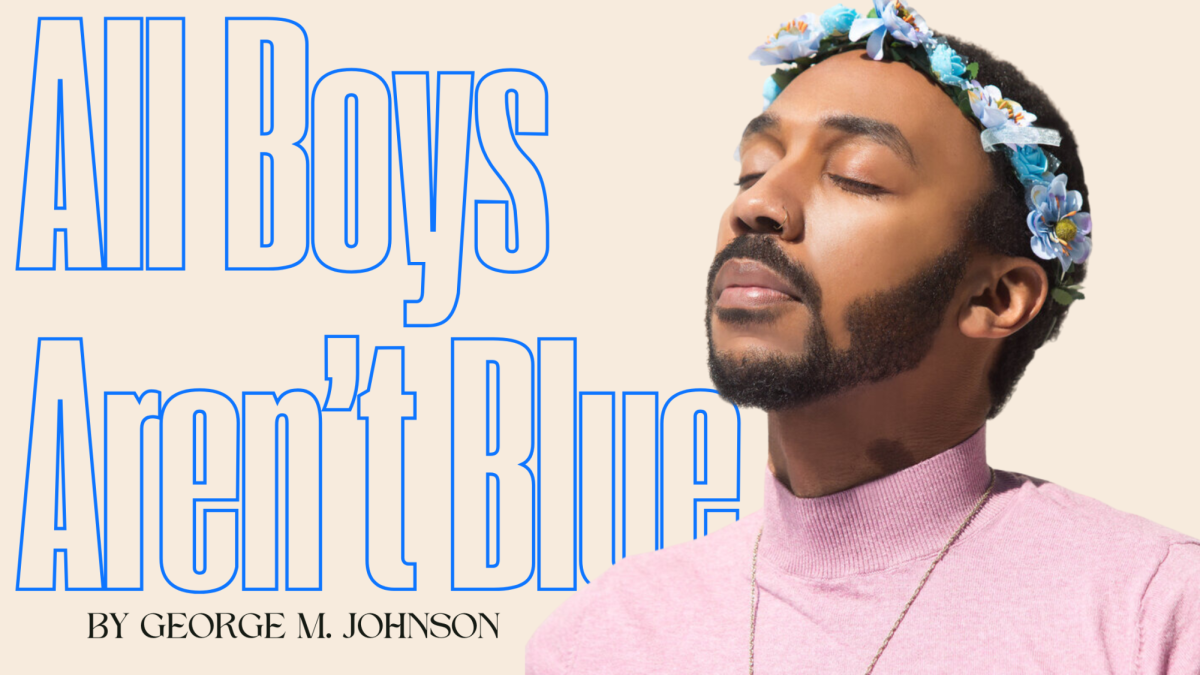Last month, CSUSM library and Pride Center hosted George M Johnson, the author of “All Boys Aren’t Blue”, one of the most banned books in the United States in recent years. Although the conversation was initially focused on Johnson’s career and the book, we also delved into broader issues concerning education and access to diverse voices in libraries and the implications that book banning’s have. Johnson emphasized that the censorship of their book wasn’t just an isolated incident but part of a larger attack on education.
“All Boys Aren’t Blue” is a memoir that delves into the Johnson’s experiences growing up as a queer Black individual. Through a series of personal essays, Johnson navigates topics such as identity, family, love, and resilience, offering a candid and insightful look into the intersections of race, gender, and sexuality. The book challenges societal norms and sheds light on the importance of representation and acceptance. For teenagers facing similar challenges to those in the book, having relatable stories is crucial for not feeling isolated and misunderstood. Removing such narratives could worsen their struggles rather than help them navigate their identities.
In addition to its literary impact, “All Boys Aren’t Blue” is set to reach even more audiences through upcoming adaptations into a television show as well as a graphic novel that is slated for release in 2026. Alongside these adaptations, Johnson is also working on several other books that will be released in the next couple of years, further expanding the reach and influence of their storytelling.
Despite its clear popularity, the book faced numerous oppositions after its release. Johnson spoke on their initial reaction to the unexpected mention of their book in places like Kansas City, where it was being used as a political platform. This sparked a series of book bans in various states, with groups like Moms for Liberty leading the way. Johnson’s activism intensified as they faced the legal challenges and criminal complaints against their book. They expressed the disbelief at the lengths that someone would go to suppress a story that resonated with a marginalized community just because they didn’t see themselves in those stories. Johnson resolve grew as politicians like Governor Reynolds of Iowa proposed extreme measures to ban books like theirs, equating such censorship with the beginnings of fascism.
Addressing the argument that such topics are not appropriate for children, Johnson countered by highlighting that young people are already seeking out this information on their own. By making diverse literature more accessible, educators and parents can empower children to develop their own understanding of the world and navigate complex issues. Having access to information can also help them to better understand such a complicated time in their life.
Today, Johnson’s advocacy has gone above sharing their story, as they now actively engage in educating people about book banning and stand in solidarity with the LGBTQ+ community. Johnson employs their “3 A’s” analogy – advocates, accomplices, and assassins – to underscore different levels of support. Advocates lend their voice to others, acting as allies without expecting reciprocity. Accomplices take tangible actions to support marginalized communities. Assassins emerge when immediate defense and support are required for the marginalized. Together, they form a comprehensive shield of protection. Johnson emphasizes the crucial stance against censorship and the importance of supporting marginalized groups. Ultimately, this dialogue serves as a rallying cry for educators, parents, and advocates to prioritize access to diverse literature, empowering youth and nurturing understanding in our complex world
Johnson ended by saying their favorite Toni Morrison quote “If there’s a book that you want to read, but it hasn’t been written yet, then you must write it”


